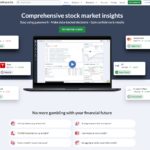To get exposure to PlayStation you need to buy Sony shares which were in the news recently as its online gaming network went off line.
PlayStation isn’t a listed company in its own right, instead it’s a brand name, and the gaming division of Japanese conglomerate Sony.
PlayStation has been in the news lately because of an extended network outage that deprived online gamers of their access to the PlayStation network. Which allows them to interact with and compete against other gamers across the globe and to buy and download games and other entertainment to their PlayStation consoles.
The PlayStation network is used by approximately 116.0 million active users per month who pay for access.
So an extended period of downtime doesn’t go un-noticed particularly when it runs into a weekend that contained a series of new video game releases.
The network was down on Friday and wasn’t restored until Saturday. Sony is offering all members 5-days free access to the network by way of compensation.
The outage has drawn a lot of attention to the PlayStation network, and to Sony shares, which were ranking highly in searches over the weekend.
As luck would have it Sony Corporation will report earnings, before the US market opens on February 13th.
Read on if you want to find out how you can invest or trade in Sony shares.
Sony ADRs
It can be notoriously hard, and or expensive, for foreign retail clients to invest in Japanese equities but luckily there are some workarounds available.
Sony ADRs
Though Sony’s principal listing is in Tokyo the company does have a presence in the US equity through its ADR or American Depositary Receipt program. ADRs allow foreign stocks to be traded on US exchanges in fact what’s traded is not the stock itself but a separate security that represents the underlying stock though not necessarily on a 1 for 1 basis. Though in Sony’s case the ADR ranks 1to1 with the ordinary shares of the company.
Sony ADR’s are listed on the NYSE. The stock is priced at $22.40 per ADR, it has a forward PE of 18.65 times and trades on price to book ratio of 2.54 and a price sales of 1.51 times.
Sony has a market cap of $135.0 billion so it’s no minnow which is good news for retail clients because if your broker trades large cap US stocks then it’s very likely that they will trade Sony ADR’s too. Just like Bristol based broker Hargreaves Lansdown one of the UKs largest stockbrokers and D2C investment platforms. You can trade Sony ADR’s in a general investment account or through a stock and shares ISA with Hargreaves Lansdown.
Sony CFDs
However trading or investing in the Sony stock is not your only way to gain exposure for example you could choose to trade CFDs on Sony. Depending on your broker you may be able to trade CFDs on Sony ADR or on the Japanese listed stock though given the time difference between the UK and Japan it may be easier to monitor the US line.
CFD brokers let you trade Contracts for Differences which allow investors to speculate on the rise and fall in the Sony stock price without owning the underlying shares.
This is possible because CFDs are cash settled derivatives struck between a client (a trader) and a counterparty (a broker or CFD provider) when the CFD is closed one side of the trade pays the other, the difference between the opening and closing prices of the trade. multiplied by the trade size.
If the client has been successful and made money on the trade, then the broker will pay the client. However, if the client has lost money on the trade, then he or she pays those losses to the broker.
CFDs have no fixed expiry dates, contract months or lot sizes and can be traded long or short with equal ease.
Note though that they are a leveraged derivative which means that you could lose more than your original investment. Though if trading with an FCA regulated broker, not more than your total account value if you are a retail client.
Sony ETFs
Another way to gain exposure to Sony for your investment portfolio would be to trade in ETFs on an Exchange Traded Fund platform that own Sony stock. For example the iShares Core MSCI Japan IMI UCITS ETF which invests in leading Japanese companies.
The ETF has just under 3.0% of its assets in Sony Corporation, in fact it is its second biggest holding behind Toyota.
The ETF is listed on the London Stock Exchange and trades under the ticker SJPA.
It has assets under management or AUM of some $5.80 billion. The fund was launched in September 2009. Since then, it has returned +220.0%.
FX risk
One thing to bear in mind when you invest in overseas stocks whether in equities directly, through a CFD, or an ETF is that you incur currency risk ,as sterling based investor trading in underlying instruments that are denominated in a foreign currency. Which means that even if the equity price goes your way your gains could be limited by unfavourable foreign exchange movements.

With over 35 years of finance experience, Darren is a highly respected and knowledgeable industry expert. With an extensive career covering trading, sales, analytics and research, he has a vast knowledge covering every aspect of the financial markets.
During his career, Darren has acted for and advised major hedge funds and investment banks such as GLG, Thames River, Ruby Capital and CQS, Dresdner Kleinwort and HSBC.
In addition to the financial analysis and commentary he provides as an editor at GoodMoneyGuide.com, his work has been featured in publications including Fool.co.uk.
As well as extensive experience of writing financial commentary, he previously worked as a Market Research & Client Relationships Manager at Admiral Markets UK Ltd, before providing expert insights as a market analyst at Pepperstone.
Darren is an expert in areas like currency, CFDs, equities and derivatives and has authored over 260 guides on GoodMoneyGuide.com.
He has an aptitude for explaining trading concepts in a way that newcomers can understand, such as this guide to day trading Forex at Pepperstone.com
Darren has done interviews and analysis for companies like Queso, including an interview on technical trading levels.
A well known authority in the industry, he has provided interviews on Bloomberg (UK), CNBC (UK) Reuters (UK), Tiptv (UK), BNN (Canada) and Asharq Bloomberg Arabia.
To contact Darren, please see his Invesdaq profile.




